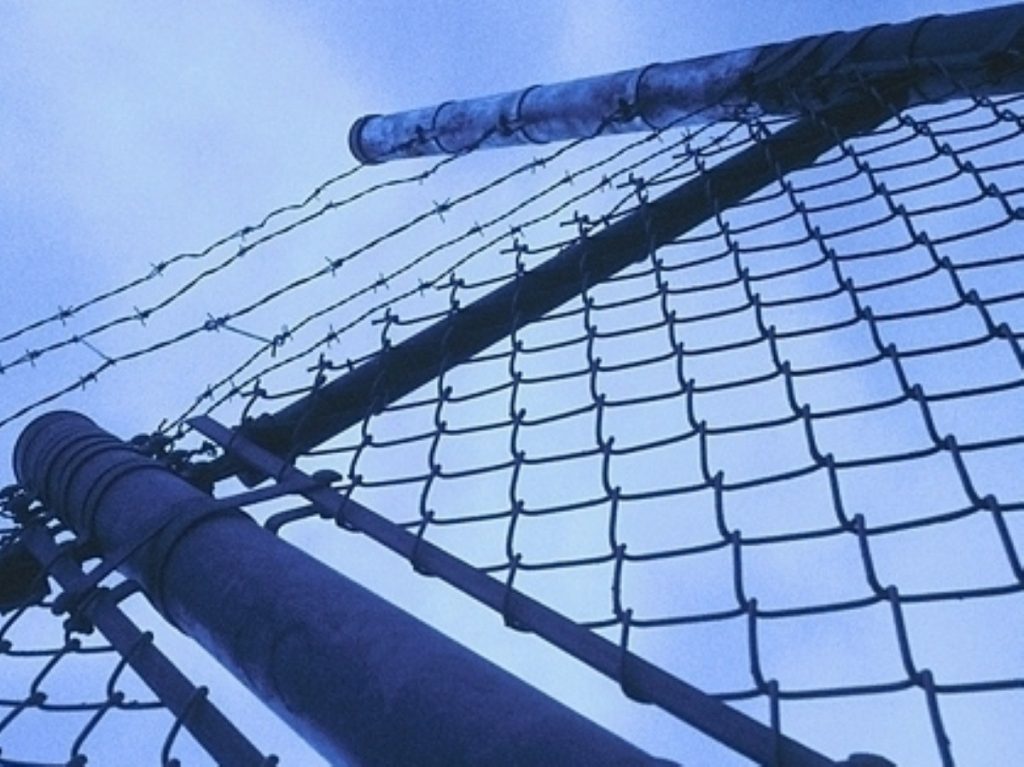Home Office refuses to budge as MPs demand detention time limit
The Home Office today refused to introduce a time limit on how long immigrants can be kept in detention, despite cross-party demands from across the Commons Chamber.
Immigration minister James Brokenshire insisted the government took the issue "incredibly seriously", but said it would be inappropriate to make any promises until the ongoing Shaw review into detention has been finalised.
A rare and impassioned debate on the detention estate saw numerous MPs from four parties get up to condemn the "brutal" system and press the Home Office for a time limit.
"I will shut it by stealth if that's what it takes," Labour MP Jess Phillips said. "We need to stop detaining,"
Labour MP Catherine West, who last month was barred from entering the controversial Yarl's Wood detention centre, said: "I feel that this debate shows a change is coming in the system."
Brokenshire repeatedly deferred any decisions on a time limit by referring to the Shaw review into detainee welfare, but the Home Office is also conducting its own internal review into detention duration.
"Depriving people of their liberty is one of most serious steps the state can take," he said.
The immigration minister agreed with a finding by the parliamentary inquiry on detention that alternatives to detention should be used where possible, but it was clear that any full Home Office response would need to wait until the Shaw review was completed.
"Until we've received the Shaw Review it's not appropriate to comment," he added.
Labour MP Paul Bloomfield told the minister the Shaw review was "too narrowly drawn" and did not include the need to look at a time limit.
Critics of the detention system were also angered by Brokenshire's insistence that detention was not indefinite, even though detainees can be held for any amount of time and never know how long their incarceration will last.
Stephen Shaw, the former prisons and probation ombudsman tasked with writing the report, has proved to be surprisingly bullish in his comments about the scope of the inquiry.
He has stated that the lack of information about how long they are being detained has a substantial effect on detainees' mental health.
That comment suggests he may include the need for some sort of time limit in his conclusions as an aspect of detainee welfare, even though the scope of the inquiry was made very narrow in a bid to prevent him doing so.
At the end of the debate, MPs voted to support a motion passing the findings of the detention inquiry without opposition, although the vote has no effect in law.
Speaking after the debate, Bloomfield added:
"In a week where the focus has been on how we support vulnerable people abroad, it is important that we also consider how we treat those who are already on our shores. Today’s debate highlighted the damaging effect indefinite detention has on detainees. Community-based alternatives in other countries are not only more humane but have proved to be less expensive and more effective.”
"During today’s debate the message from MPs from all parties and from all over the country was clear – it’s time for a time limit. The Government should listen to the growing number of voices calling for reform and act now."
The debate comes as the detention system faces a wave of political and legal opposition.
A recent high court case found the detention fast-track system used to lock up many detainees to be unlawful, triggering the release of hundreds of people.
A Channel 4 News expose of Yarl's Wood, a detention centre which holds mostly women detainees, found guards describing inmates as "bitches" and encouraging each other to use "sticks" on them.
That report forced Serco, the private firm which runs the centre, to set up an independent inquiry. But the firm blocked the UN special rapporteur on violence against women from visiting when she came to the UK last year.
Some campaigners believe the Home Office and its private contractors are trying to shut down independent scrutiny of the detention estate, as they come under greater political and legal pressure.
Meanwhile, figures released by the government recently, show the detention system is failing under its own conditions.
The centres are only supposed to be used to ensure the deportation of undocumented immigrants and failed asylum seekers at risk of absconding, but recent data shows less than half of those released are removed from the UK. The rest are released into the community.
The slow-down in deportations may explain a sudden Home Office U-turn on expanding the size of the detention estate.
A planned expansion of Campsfield detention centre was recently shelved, while Haslar immigration centre was closed.
It costs an average of £98.70 a day to keep someone in immigration detention, equivalent to £36,026 per year.
Electronic monitoring, which some critics of detention propose as an alternative, costs just £4,968 a year.
On top of the costs of maintaining the detention system, the Home Office also regularly spends millions in compensation for unlawful detention, including £4.8 million in the year 2013-2014.





-01.png)